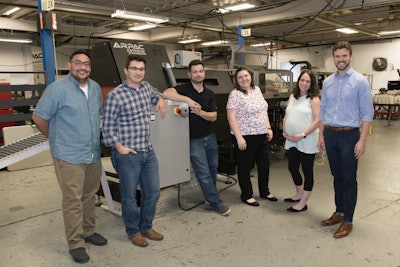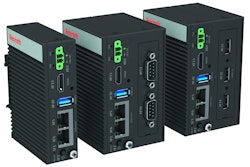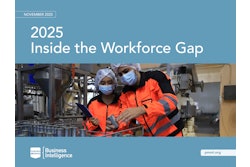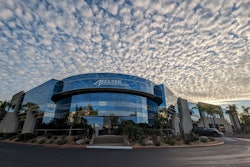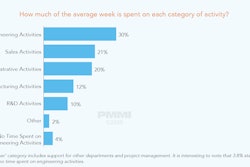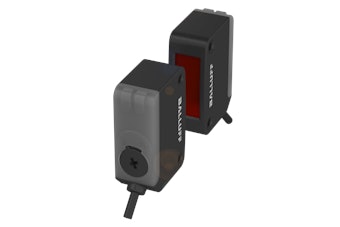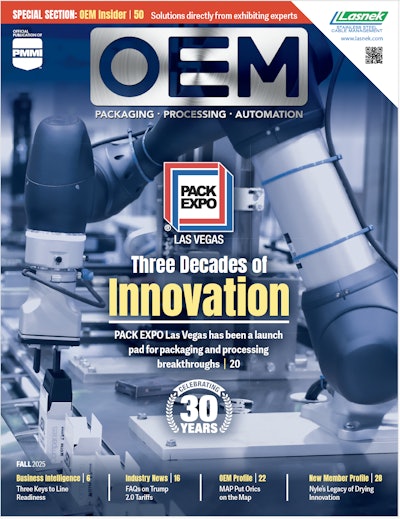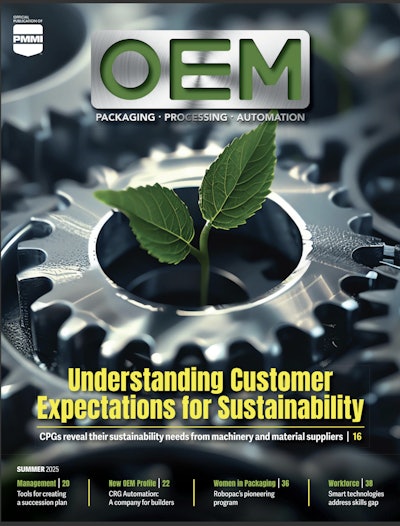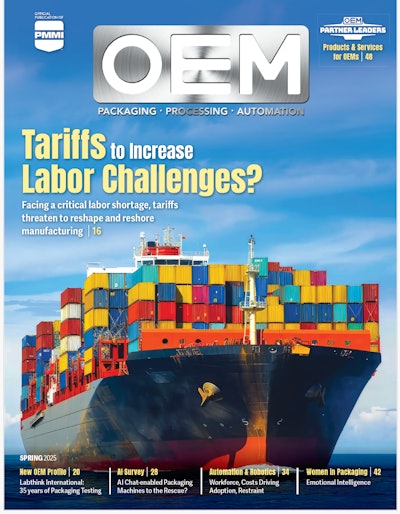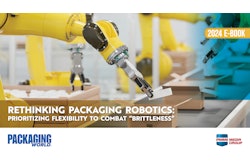As OEMs grapple with the manufacturing skills gap and try to find innovative ways to evolve their workforce, one Midwest machine builder may be onto something when it comes to employee retention.
ARPAC, a Schiller Park, Ill.-based end of line equipment manufacturer and part of the Duravant family, is taking a practical, yet different, approach to employee retention by engaging its younger workforce. The OEM has about 40 Millennial employees that want to help ARPAC evolve with the new generation. In response, a few years ago, the OEM’s management team assembled a group of seven people from its Millennial group to form “The Voice of Tomorrow,” a network of younger employees that are tasked with constructively spearheading new initiatives around culture and delivering the opinions and voices of Millennial employees to management.
“Our executive team wanted to see what we could do as an organization to make sure we are setting up the company culture to be inclusive of Millennials,” says Sam Sadler, product manager of ARPAC’s Extreme Series product line, and a Voice of Tomorrow member. “When you compare Millennials and other generations, there is a shift in how people view work and what’s important to them. We wanted to make sure our culture was growing with the changing times and accommodating all generations effectively.”
Recruiting talent and finding skilled workers to hire can be half the battle when developing a workforce, but the other half is keeping employees at your company once they are on board. The manufacturing industry, in particular, is experiencing a rise in voluntary turnover rates, which was at 9.8 percent in 2017, according to Compdata Survey’s Compensation Data Manufacturing & Distribution report. As OEM magazine learned this past spring, many machine builders are revising how they treat company culture to accommodate incoming generations, and ultimately, retaining them, which has been a successful tactic for the OEMs we interviewed. But we also heard, “I’d like to change my culture, but I don’t have the time or the resources. Who would enact this culture change?”
Reverse the influence
Culture is usually driven from the top down in most companies, which doesn’t give incoming generations and younger employees much of a say in how the company treats its people or how it deals with processes. But ARPAC’s Voice of Tomorrow gives the OEM’s younger talent a seat at the table and a true say in how the company approaches culture.
“It’s not about turning the culture on its head and completely changing it,” says Mike Allegretti, marketing and documentation supervisor, and Voice of Tomorrow member. “We want to evolve the culture to appeal to our younger workforce, while still maintaining the needs and desires of the older generation that we do have. This group stands for creating a culture that is inclusive of everyone.”
Some of the most recent initiatives the group has spearheaded are around flexible work schedules, dress code and corporate social responsibility duties.
“We come together and determine what is important to us right now as a group, and then the executive team takes that feedback and sees how they can implement it,” Sadler says. “One of our first tasks was to take a look at the dress code and give feedback on what’s important to Millennials, and when we presented our findings, the company rolled out a brand new dress code.”
Being a part of the larger picture
But the real perks aren’t a casual dress code, it’s a young workforce that is invested in the company, and a company that is invested in its workforce. This win-win scenario has become a workforce retention tool for ARPAC, according to the Voice of Tomorrow’s board members. For example, Sadler says one of the most prominent and troubling trends he noticed when he joined the manufacturing industry six years ago was the hit an OEM took when it spent critical time training personnel just to lose them weeks later.
“To keep these quality candidates it’s important to do whatever we can to have a culture that makes them want to stay. And believe it or not, a lot of the reasons why someone leaves comes down to culture,” Allegretti says. “Thirty years ago, it was all about going to work, doing the grind, and then going home. With the technology and connectivity of today it’s just not that way anymore. So, I think it’s critical for every company to refocus their culture for the changing times.”
Having a say in ARPAC’s culture has kept Mia Ivanova, a general accountant and Voice of Tomorrow member, at the company for five years, despite receiving multiple offers from other companies. And she’s not alone. A 2017 study done by Great Place to Work—the longtime research partner for Fortune’s annual list of the 100 Best Companies to Work For—found that Millennials who believe they work at a great place are 20 times more likely—than their peers who do not feel the same—to stay with their company. When compared to Millennials, Gen Xers were 15 times more likely to stay, and Baby Boomers were only nine times more likely to stay, showing just how critical culture is to the incoming generation.
“I have been offered jobs at other places for a higher salary,” Ivanova says. “But what really keeps me here is the people, the management and the ability to learn so much. Other companies isolate you in one aspect of the business. If I want to, I am able to learn about other parts of the company, and ARPAC is completely accommodating. That really reflects just how committed they are to their employees.”
Culture outweighs salary
According to a 2016 study by Fidelity, Millennials would take an average pay cut of $7,600 to have a job that promoted career development, purposeful work, better work life balance and a progressive culture. And ARPAC’s Voice of Tomorrow echoes those findings.
“It’s less about the money for me,” Sadler says. “I would and will take a discount to work at ARPAC because of the culture. I think it’s safe to say that most people would love to enjoy their work for less money, than make a lot of money and hate what they do. We work for money, but it’s important to me to feel valued.”
Great Place to Work’s research also revealed that Millennials are six times more likely to choose a company to work for where they find “special meaning” in their work.
“I started as an intern, so I had the chance to know what ARPAC was like and then compare it to other companies before deciding to sign on full time,” says Sean Kane, a mechanical project engineer and Voice of Tomorrow member who has been at ARPAC for five years now. “Culture was a huge part of my decision to come back. I really enjoyed the people I was working with, and I saw an opportunity not just to get a job out of college, but to get a chance to learn and grow at a place where people would be there to teach and assist me. That weighed heavily in my decision to work here.”
Ivanova recognizes that the Millennial generation is notorious for not being loyal to companies, but being a part of a group like ARPAC’s Voice of tomorrow helps keep her and her fellow Millennial peers tuned in and engaged because it shows them that there is importance behind their position and opinion.
Engagement is the key to retention
According to a 2016 Gallup survey, only 29 percent of Millennials claim to be completely engaged in their jobs, which can attribute to the high turnover rate many companies experience.
“Millennials can get lost in the mix, and it gets to the point where you feel like a number,” says Alexander Vale, a planner and buyer for ARPAC and a Voice of Tomorrow member. “But ARPAC makes us feel like we are a strategic part of this organization and that we are valued, especially being involved in this group.”
As a testament to how involved and committed the Voice of Tomorrow group is, they allude to how they will approach culture when they are executives running ARPAC decades from now.
“When we are in charge, we will need to be looking at the two generations after us who will be coming into the workforce, and we will also have to develop a new culture to accommodate them.” Sadler says. “This isn’t just a problem unique to the Millennial generation. Culture should be something that is always evolving.”
